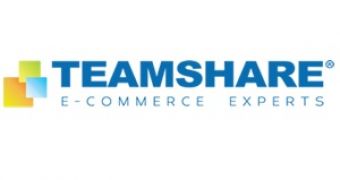The entire world is turning to the Internet and businesses everywhere are eager to get online. However, many traditional store owners remain wary of taking such a step into the digital world.
Most choose to stick with what they know, which often means doing everything on their own.
But companies around the world find out quickly that if they want to grow, to expand, to be successful, they need to be found online. And that’s where site developers specialized on B2B (business to business) and B2C (business to consumer) come in.
Teamshare, a Romanian company, is a well-known player in several European countries, as more and more businesses chose their services to invent or reinvent their online shops. It has worked with companies from Romania, Austria, France, Bulgaria, Russia and the United Kingdom.
Softpedia talked with the company’s managing partner, Marius Panait, about Teamshare, the eCommerce market and how the world has changed over the past decade.
Softpedia: Teamshare has been around for a while now. How has the market changed ever since you started out?
Marius Panait: Significantly. Ten years ago online solutions were regarded as merely a passing trend by the majority of Romanian businesses (“sounds good, but not for us”), now they are increasingly seen as vital to the survival of any company, never mind growth.
This is not about being present online, after all publishing a website nowadays is child’s play for anyone able to use a computer, but mostly about making actual use of the advantages brought by the online environment.
Softpedia: What good is a website taking orders if the entire back-end process is still driven by humans frantically trying to reconcile stocks, prices and fulfillment while maintaining their sanity?
MP: Business has become faster, supported by technology and communication networks – the only way to keep up is to employ automated workflows and systems able to cope with the level and speed of information.
This is where our solutions come into play with a strong accent placed on automation and integration between the e-commerce website and all platforms used by an online business (ERP systems, payment gateways, courier services, business intelligence systems, etc).
Softpedia: How have the markets from the US and Europe change over the past decade when it comes to eCommerce?
MP: We’ve only deployed our software solutions in Europe up until now – UK especially; there the online space has become increasingly crowded with many agencies playing the online advertisement card, offering e-commerce solutions bundled with online marketing services.
Besides making themselves heard in a very “noisy” environment, process automation remains one of the main challenges online companies face there also – the lower the operational cost the higher the profit.
Softpedia: How do you see the e-commerce market as a whole and how do you think it will evolve over the next few years?
MP: The B2B market gets half the traffic the B2C one gets. At a global level, I believe the B2B market has a huge growth potential. There are studies indicating that only 25 percent of all B2B transactions happen online, but it has already reached the $500 billion milestone.
The growth for the next few years will come from the companies’ necessity to reduce operational and logistics costs, but also to respond to the trends set by customers or competition.
There are cases when resellers and distributors put pressure on producers to automatize the ordering processes. For instance, big retailers and DIY shops force suppliers to accept electronic orders through EDI system.
Softpedia: Which are the best-known names in your portfolio and how have you helped them grow their business?
MP: ALCAR Romania, France and Russia. They are part of a European holding producing and selling alloy and steel rims for cars. Capra Nera by DÉESSE of Switzerland is another company we’ve worked with.
They have a similar business model, meaning they sell products through a national network or resellers. The first benefit came out in the first three to six months of using the e-commerce platform, and that’s all the saved time.
Their partners can now check the stocks, deals, clearance sales and put in orders. Also, our clients use less internal resources to process the same number of orders.
Freeing up so much time means companies can redirect their efforts to finding even more resellers.
The second big benefit is the number of new sales. Orders placed online have a rapidly growing share in the total number of sales. Our clients understand this and we help them with specific features to help them grow online sales.

 14 DAY TRIAL //
14 DAY TRIAL //